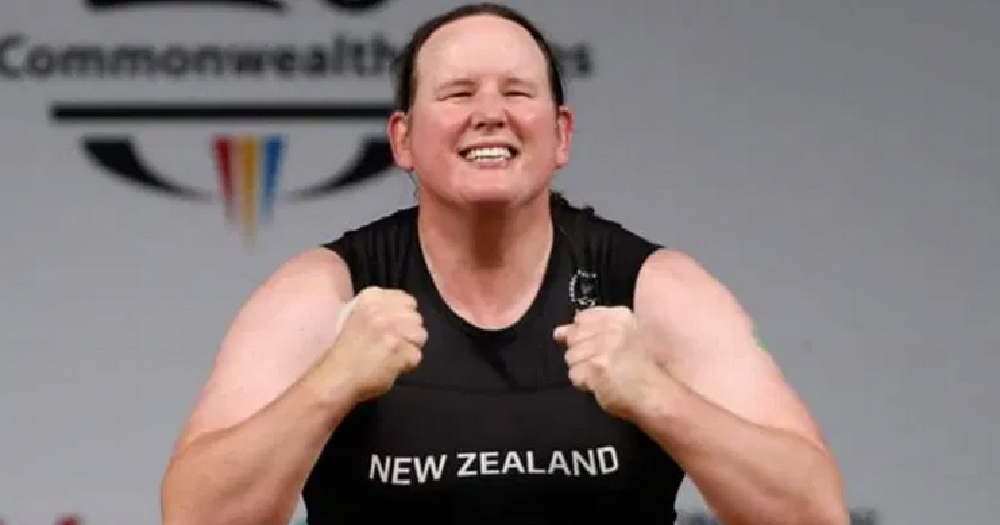New Zealand weightlifter Laurel Hubbard is likely to become the first openly transgender athlete to compete at the Olympic Games. This comes after the Tokyo 2020 qualifying requirement for athletes to attend six competitions prior to the games was reduced to four. The New Zealand Olympic Committee (NZOC) said the International Weightlifting Federation (IWF) modified the requirements due to COVID-19, and that Hubbard was now likely to be selected.
“The NZOC can confirm that revised International Federation (IF) qualification systems are very likely to see a number of New Zealand weightlifters, including Commonwealth Games transgender athlete Laurel Hubbard, allocated an IF quota spot for Tokyo 2020,” the NZOC said in a statement. Although, though the official nominations for the Olympic Games are not expected to take place until June.
In 2017, Hubbard won New Zealand’s first-ever weightlifting world championship medal, placing second overall in the IWF World Weightlifting Championships in Anaheim, California. New Zealand Weightlifting High-Performance Director Simon Kent commented at the time that Hubbard is “a dedicated athlete and her hard work has paid off”.
Hubbard has already made the history books, as in 2018 she became the first transgender person to compete in the Commonwealth Games. Australia’s weightlifting federation sought to block Hubbard from competing at the Games on the Gold Coast but organisers rejected the move. Oceania Weightlifting Federation general secretary Paul Coffa defended Hubbard’s participation, saying “She’s done everything according to the IOC rules and she’s proven that she’s a woman… so give her a chance and let her continue”.
Hubbard was favourite to win the +90kg weightlifting competition, however, sustained an injury while attempting a Games record 132kg lift. She was forced to withdraw, but commented afterwards, “I have no regrets about the decision to attempt a record weight as I believe that sport requires athletes to be their best…The crowd was magnificent and gave me their full support. So, I tried to give the crowd the best performance I could… It wouldn’t be true if I said I was happy, but I’m adamant that there are no regrets”.
The injury, which ruptured a ligament in Hubbard’s left arm, threatened to end her career. “My arm is busted,” Hubbard said. “It looks like it’s probably going to be a career-ending injury, which is a real shame, but I’m glad I’ve gone out trying to achieve my best on the platform.” However, the athlete has made a strong comeback since then and is now ranked 16th in the world in the women’s +87kg category.
Hubbard has been eligible for the Olympic Games since 2015, when the International Olympic Committee released guidelines stating that transgender women could compete in women’s competitions so long as their testosterone levels were below 10 nanomoles per litre for at least a year before their first competition.
The strides Hubbard has made in her field are particularly laudable given the hostile and discriminatory environment trans athletes are often forced to navigate. Speaking to Radio New Zealand in 2017 she said she just wanted to compete in the sport she loves and “blocked out” criticism. “If I try and take that weight on board it just makes the lifts harder… I am who I am,” she said, “I don’t want to change the world. I just want to be me and do what I do.”
© 2021 GCN (Gay Community News). All rights reserved.
Support GCN
GCN is a free, vital resource for Ireland’s LGBTQ+ community since 1988.
GCN is a trading name of National LGBT Federation CLG, a registered charity - Charity Number: 20034580.
GCN relies on the generous support of the community and allies to sustain the crucial work that we do. Producing GCN is costly, and, in an industry which has been hugely impacted by rising costs, we need your support to help sustain and grow this vital resource.
Supporting GCN for as little as €1.99 per month will help us continue our work as Ireland’s free, independent LGBTQ+ media.

comments. Please sign in to comment.